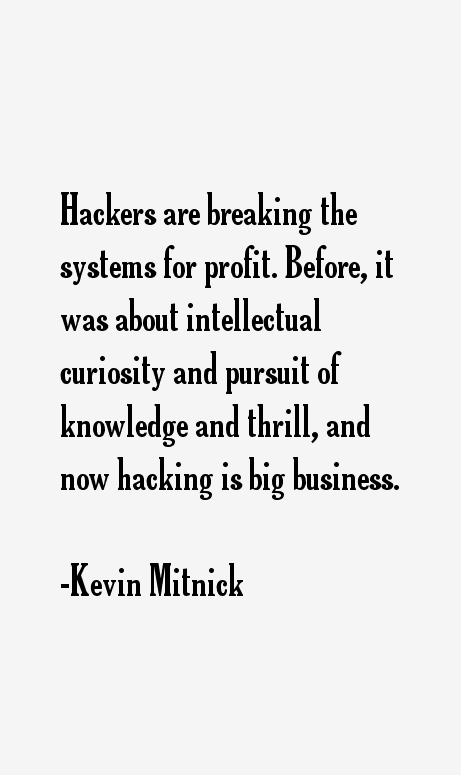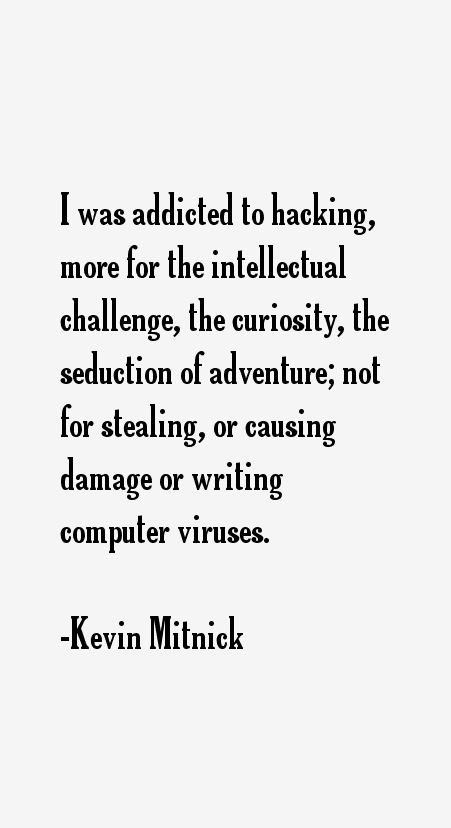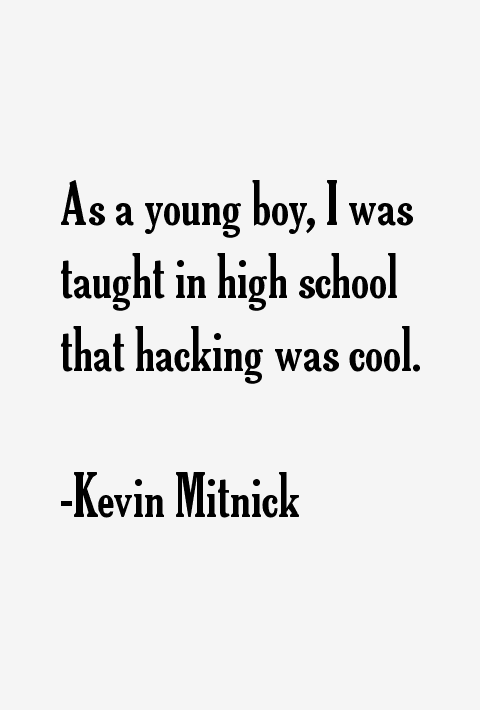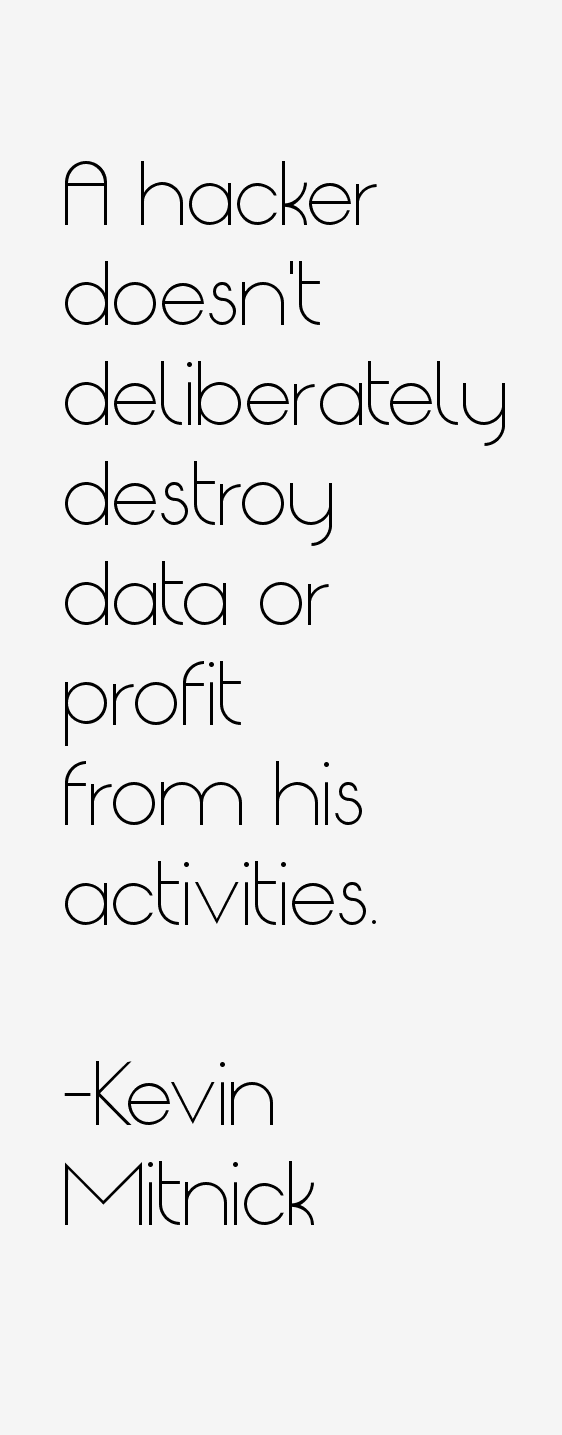Kevin Mitnick Quotes & Sayings
128 most famous Kevin Mitnick quotes and sayings. These are the first 10 quotes we have for him. He's a 62 year old American businessman born on Aug 6, 1963.

“Hackers are breaking the systems for profit. Before, it was about intellectual curiosity and pursuit of knowledge and thrill, and now hacking is big business.”

“I was addicted to hacking, more for the intellectual challenge, the curiosity, the seduction of adventure; not for stealing, or causing damage or writing computer viruses.”
“Companies spend millions of dollars on firewalls, encryption, and secure access devices and it's money wasted because none of these measures address the weakest link in the security chain: the people who use, administer, operate and account for computer systems that contain protected information.”
“Social engineering is using manipulation, influence and deception to get a person, a trusted insider within an organization, to comply with a request, and the request is usually to release information or to perform some sort of action item that benefits that attacker.”
“Computer hacking really results in financial losses and hassles. The objectives of terrorist groups are more serious. That is not to say that cyber groups can't access a telephone switch in Manhattan on a day like 9/11, shut it down, and therefore cause more casualties.”

“As a young boy, I was taught in high school that hacking was cool.”

“New security loopholes are constantly popping up because of wireless networking. The cat-and-mouse game between hackers and system administrators is still in full swing.”

“A hacker doesn't deliberately destroy data or profit from his activities.”

“You can never protect yourself 100%. What you do is protect yourself as much as possible and mitigate risk to an acceptable degree. You can never remove all risk.”
“It's true, I had hacked into a lot of companies, and took copies of the source code to analyze it for security bugs. If I could locate security bugs, I could become better at hacking into their systems. It was all towards becoming a better hacker.”
Kevin Mitnick Quotes Rating
No Ratings Yet
Leave A Comment
























